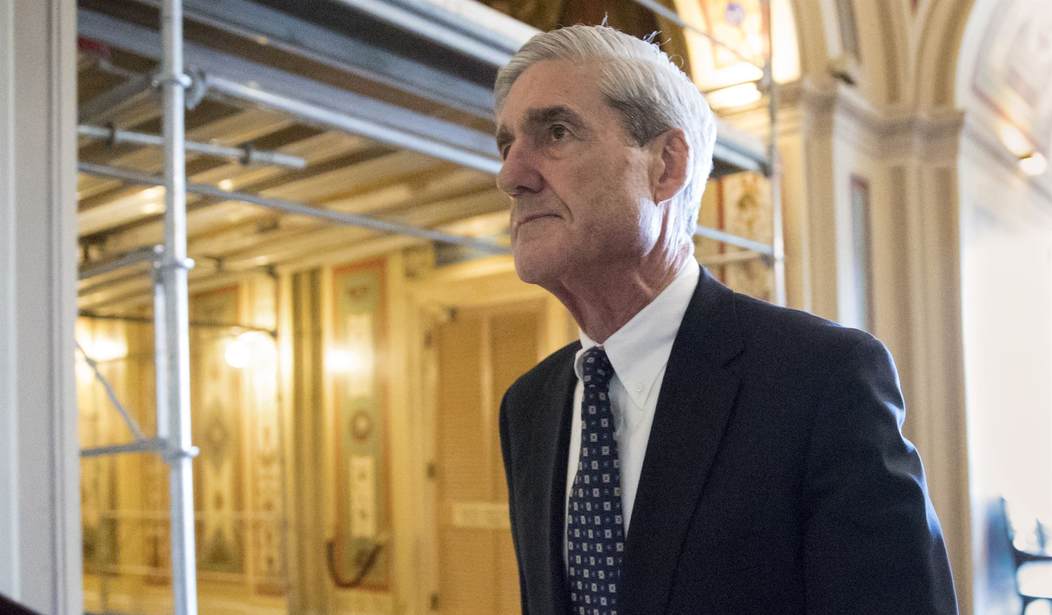Robert Mueller is the special counsel appointed by Deputy Attorney General Rod Rosenstein in May 2017 to probe the nature and extent of Russian interference in the 2016 presidential campaign. The investigation began in October 2016 under President Barack Obama when the FBI took seriously the boast of Carter Page, one of candidate Donald Trump's foreign policy advisers, that he had worked for the Kremlin.
The FBI also had transcripts of telephone conversations and copies of emails and text messages of Trump campaign personnel that had been supplied to it by British intelligence. Connecting the dots, the FBI persuaded a judge on the Foreign Intelligence Surveillance Court to issue a search warrant for the surveillance of Page, an American.
Page never registered as a foreign agent, and working for the Kremlin and not registering as a foreign agent is a crime for which the FBI should have investigated Page. Such an investigation would have included surveillance, but not from the FISA court. Surveillance in a criminal case requires a search warrant from a U.S. District Court based upon the constitutional requirement of probable cause of crime -- meaning that it is more likely than not that the thing to be searched (internet and telephone communications) will produce evidence of criminal behavior.
But the FBI didn't seek that. Instead, it sought a warrant to surveil Page's communications based on the Foreign Intelligence Surveillance Act standard, which is probable cause of communicating with a foreign power. This lower, easier-to-demonstrate and unconstitutional standard is the tool of choice these days for FBI agents because it requires less effort and is used in a court that grants 99.9 percent of search warrant applications.
The temptation to use the FISA court and its easy standard instead of a U.S. District Court and its privacy-recognizing constitutional standard to get a search warrant is often too much for the FBI to resist. This is a form of corruption because it presents a path for criminal investigators to invade the privacy of Americans that the Constitution protects.
Recommended
Yet the FBI used whatever it learned from the surveillance of Page to get that surveillance extended. Even the Trump Department of Justice went to the FISA court to spy on Page. Lost in all this is the purpose of FISA -- to prevent government surveillance of Americans and limit it to agents of foreign powers.
When Jeff Sessions became attorney general, he recognized that he himself would most likely be a witness in the Mueller investigation because of his involvement in the Trump campaign, so he removed himself from all matters pertaining to Russia, and his deputy, Rosenstein, appointed Mueller to run the investigation.
What is Mueller looking for?
When the feds are examining a potential crime committed by a group, their treasure-trove of evidence can often be a member of the group who reveals the criminal behavior of his former colleagues. That's why the feds often indict people for crimes that appear to be irrelevant to the ones they are investigating -- in this case, lying to the FBI and bank fraud allegedly committed before the 2016 election.
When such an indicted person can then be persuaded to turn on his former colleagues in return for a lesser charge or a lighter sentence, prosecutors can have a field day. This is a form of bribery -- you tell us on the witness stand what we want to hear and we'll go easy on you -- that is permitted only to prosecutors; and the courts condone it. If defense counsel gave as much as a lollipop to a witness to shade his testimony, both would be indicted.
From the backgrounds of those whom Mueller's grand juries have indicted and from the deals they have cut with him, it appears that Mueller is looking at three areas of potential criminal behavior. Mueller has already established as a base line the saturation of the 2016 presidential campaign by Russian intelligence agents. If his indictments of these Russians are accurate, they were here virtually and physically and they spent millions to help Trump. But the indicted Russians are not coming back to the U.S. for their trials.
Mueller is examining their potential American confederates for the crime of conspiracy -- or, as my colleagues in the media call it, collusion. This would be an agreement by campaign officials to accept something of value from a foreign person, entity or government, even if the thing of value -- for example, Hillary Clinton emails -- was never actually delivered. The crime is the agreement, and it is prosecutable after at least one of those who agreed takes a material step in furtherance of the agreement.
Mueller's second area of examination is possible obstruction of justice by President Trump himself. Obstruction is the interference with a judicial proceeding for a corrupt purpose. Was FBI Director James Comey fired because Trump couldn't work with him or because he was hot on the president's trail and Trump wanted to impede that? If it was the former, it would have been licit. If it was the latter, it could have been criminal.
The third of Mueller's areas is financial dealings by the pre-presidential Trump. These bear little surface relationship to Russian involvement in the campaign, yet evidence of wrongdoing must have come to Mueller from his FBI agents or his cooperating witnesses, and he is following the money as prosecutors do.
Where will all this go? The president cannot seem to find an experienced criminal defense lawyer. Mueller has 16 experienced federal prosecutors and a few dozen FBI agents passionately at work. And he also has witnesses he legally bribed and a few hundred thousand documents from the White House and from Trump's financial affairs that the president has not personally reviewed.
And now Mueller wants to interview the president. Who will have the upper hand if that happens?

























Join the conversation as a VIP Member